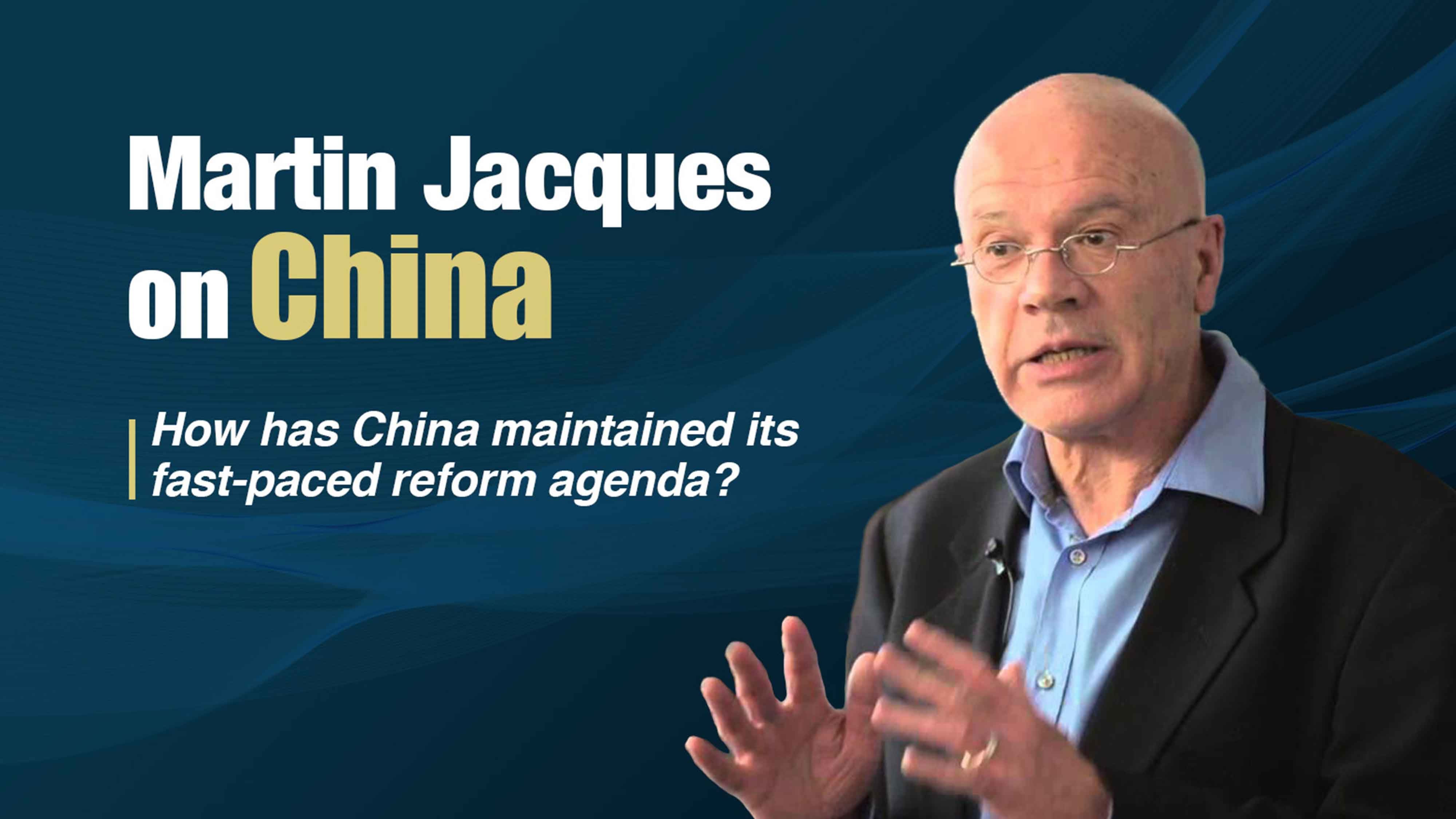
Opinions
17:40, 01-Jan-2018
Martin Jacques on China: How has China maintained its fast-paced reform agenda?
CGTN

Editor’s note:
China’s reform and opening up policies began in 1978 under the guidance of Deng Xiaoping. Almost four decades later, the country continues to grow steadily and the transformation process shows no sign of letting up. To make the economy even more dynamic, further supply-side reforms are in the pipeline and greater access to the Chinese market for foreign companies is planned.
Martin Jacques on China assesses the success of China’s reforms, asks whether the policies have changed the very idea of socialism, and considers how the country has maintained a fast pace of change.
Because the reform process is always changing, my view of the reform period is always changing with it. If the reform process gets stuck, then we're in trouble. But it doesn’t get stuck. It keeps on moving with extraordinary dynamism.

Night scene of Lujiazui district, Shanghai, China. /VCG Photo
Night scene of Lujiazui district, Shanghai, China. /VCG Photo
I think the first time I learned about Deng Xiaoping’s reform strategy was probably in 1978. But I wasn’t that close to China and I certainly was not particularly knowledgeable about the country back then. I was not engaged in writing or thinking about China at that point, but it was always somewhere, you know, it was part of my background knowledge that I acquired during this period.
Now almost 40 years later, I've begun to think of the reform period in a different historical way. I will make just two points in relation to that.
Firstly if you look back at it now, I ask myself, what does the reform period say to me? It says this is the most dynamic, extraordinary transformation in human history. What more can you say about any historical period economically than that? I think that is the truth.
The other thing I see in retrospect is the interesting shift Deng Xiaoping made in 1978 in the idea of socialism. This is one of the things I really like about the Chinese Communist Party. It didn’t get stuck.
Until Deng Xiaoping, for example, socialism was regarded as planning and public ownership means, production and distribution and so on. And it was sort of a binary view. But actually what I think what Deng Xiaoping did was to reform in a very interesting and a very successful way, the whole idea of what socialism was.
(British journalist and academic Martin Jacques, the author of global bestseller When China Rules The World, is one of the leading Western commentators on Chinese affairs. He is a senior fellow at Cambridge University and an invited senior fellow at the China Institute, Fudan University. Martin Jacques on China is an eight-part video series discussing issues affecting China’s future.)

SITEMAP
Copyright © 2018 CGTN. Beijing ICP prepared NO.16065310-3
Copyright © 2018 CGTN. Beijing ICP prepared NO.16065310-3